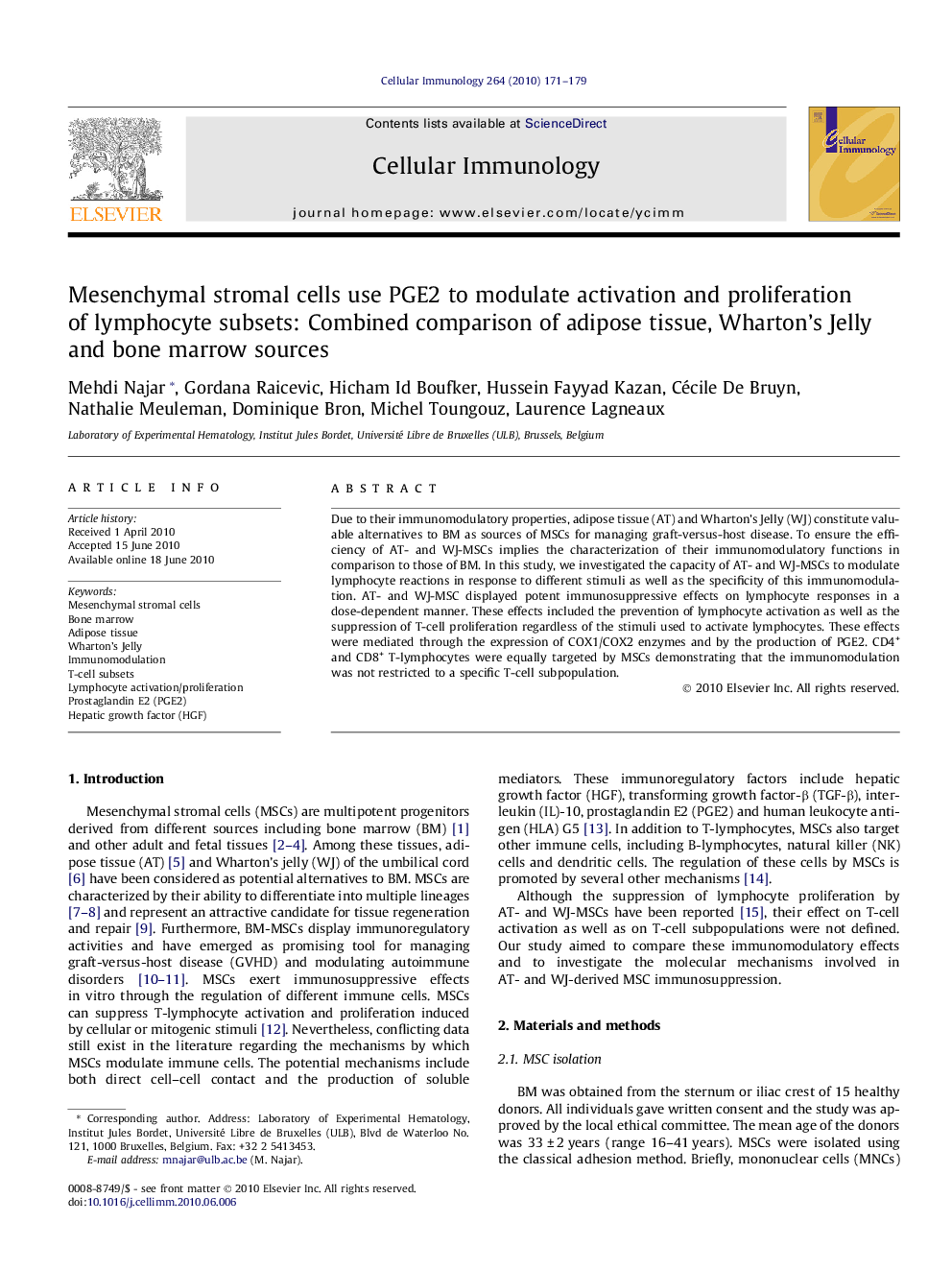| Article ID | Journal | Published Year | Pages | File Type |
|---|---|---|---|---|
| 2167542 | Cellular Immunology | 2010 | 9 Pages |
Due to their immunomodulatory properties, adipose tissue (AT) and Wharton’s Jelly (WJ) constitute valuable alternatives to BM as sources of MSCs for managing graft-versus-host disease. To ensure the efficiency of AT- and WJ-MSCs implies the characterization of their immunomodulatory functions in comparison to those of BM. In this study, we investigated the capacity of AT- and WJ-MSCs to modulate lymphocyte reactions in response to different stimuli as well as the specificity of this immunomodulation. AT- and WJ-MSC displayed potent immunosuppressive effects on lymphocyte responses in a dose-dependent manner. These effects included the prevention of lymphocyte activation as well as the suppression of T-cell proliferation regardless of the stimuli used to activate lymphocytes. These effects were mediated through the expression of COX1/COX2 enzymes and by the production of PGE2. CD4+ and CD8+ T-lymphocytes were equally targeted by MSCs demonstrating that the immunomodulation was not restricted to a specific T-cell subpopulation.
